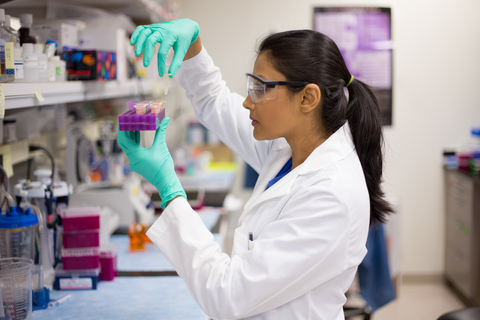First step in development of pill-based vaccines

Researchers from Cardiff University have created the world’s first synthetic, non-biologic vaccine.
Cardiff University reports the non-biologic influenza vaccine, which can be delivered orally, could herald a revolution in vaccine delivery. Stable at room temperature, the new type of vaccine, which could be given in pill form, does not require refrigeration, a process that can account for most of the cost of delivery of many current vaccines. Vaccines that do not require refrigeration can be transported more easily and are more suitable for developing countries where it can be difficult to keep things cool.
Professor Andrew Sewell, from Cardiff University’s School of Medicine, who led the study, said “There are many benefits to oral vaccines. Not only would they be great news for people who have a fear of needles but they can also be much easier to store and transport, making them far more suitable for use in remote locations where current vaccine delivery systems can be problematic.”
As the first synthetic and stable vaccine, the new form of preparation was made in a very novel way, by using mirror images of the protein molecules that make up life. Standard vaccines usually work by introducing a safe form of a germ, or a harmless part of that germ (often proteins) into people’s bodies. These foreign proteins stimulate the immune cells which then remember it and launch a stronger attack if they encounter it again. Normal germs or proteins would usually be digested if eaten. The new work shows that stable mirror image forms of parts of such proteins can also induce a protective immune response. These mirror image molecules cannot be digested, opening up the possibility for stable non-biologic vaccines to be supplied in pill form.
Andrew Sewell said “The carbon molecules that form all proteins on Earth are left-handed molecules, but they also have a non-biologic, right-handed form. Even though these two forms of a molecule look identical at first glance they are actually mirror images of each other, just like our right and left hands, and cannot be superimposed on each other. The left-handed forms of proteins are easily digested and do not last long in nature. The unnatural, right-handed forms of these molecules are vastly more stable. Our demonstration that unnatural molecules, like these mirror image molecules, can be successfully used for vaccination opens up possibilities to explore the use of other unnatural, stable molecular ‘drugs’ as vaccines in the future.”
This new work provides proof of concept in a laboratory setting. A lot more research will be required to develop such approaches for the entire population and other diseases. It is likely to take several years before a non-biologic vaccine could be tested in humans.
Divya Shah, from Wellcome’s Infection and Immunobiology team, said “This is a very exciting first proof of concept study that could provide a potential route to make vaccines that are thermostable and be administered orally. This could reduce the cost and increase accessibility across the globe, however much more research is needed to translate the findings into real-world vaccines.”
The Research was funded by Wellcome and BBSRC and is published in the Journal of Clinical Investigation.








